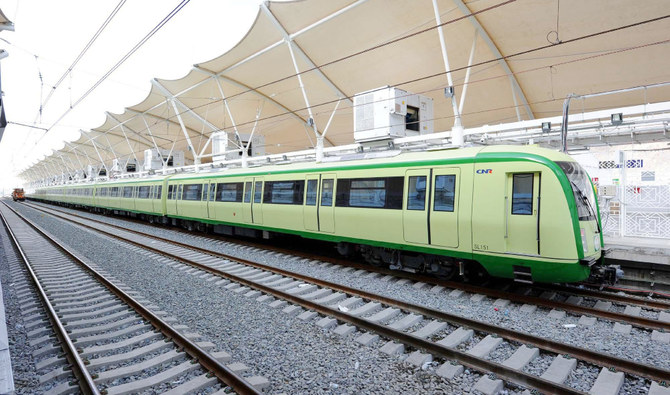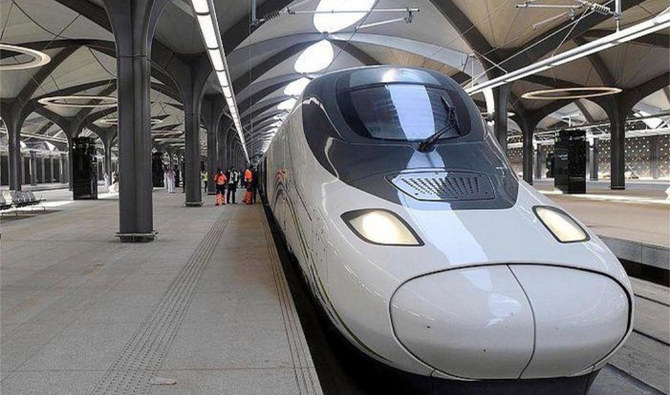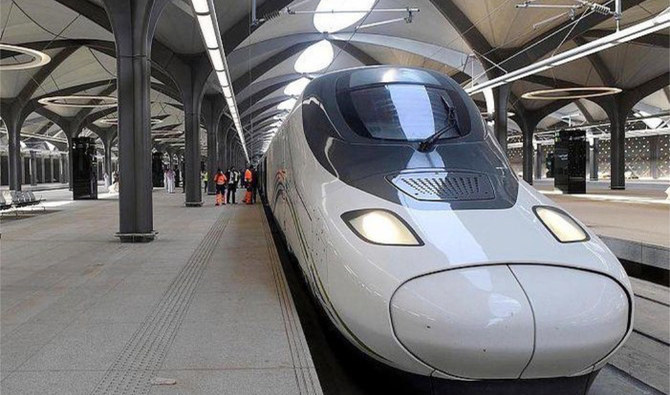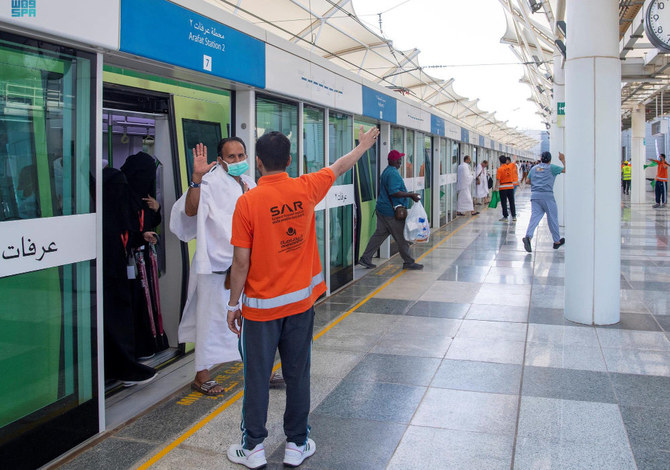RIYADH: The Mashaer trains have been approved to operate during this year’s Hajj to ensure the rapid movement of pilgrims between Mina, Arafat and Muzdalifah, according to the Hajj Affairs and Transport Department.
The use of this advanced railway system has resulted in the reduction of 50,000 buses from the roads between the holy sites. It was not fully operational during the COVID-19 pandemic.
The trains travel up to 120 kilometers an hour, completing the distance between Arafat and Mina in 13 minutes, and Arafat and Muzdalifah in seven.
FASTFACTS
• Railway lines reduce bottlenecks on the roads and travel time for Hajj pilgrims.
• The Al-Haramain high- speed train also in service between Madinah, Jeddah and Makkah.
On June 16, Saudi Minister of Transport and Logistics Saleh Al-Jasser inspected the train stations in preparation for the influx of pilgrims.
According to the transport department, every year a total of 20 trains, each 300 meters in length, and with a capacity of 3,500 pilgrims, transports about 70,000 pilgrims in an hour, and around 420,000 pilgrims over six hours between the holy sites, which includes the station at the Jamarat bridge.
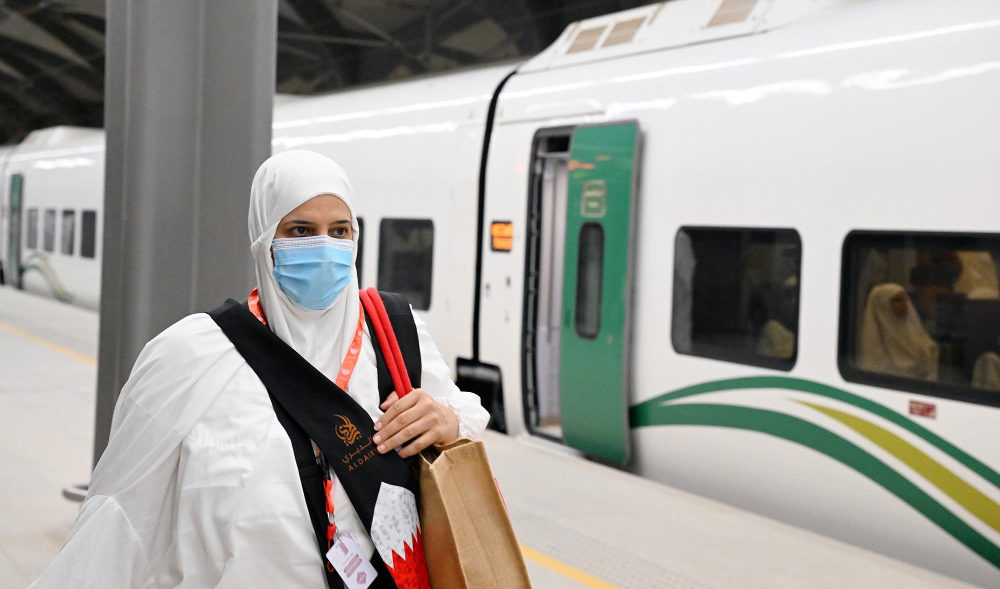
(Photo/SPA)
The railway company has hired young citizens for seasonal jobs during the Hajj to assist pilgrims. It has also contracted a security company to oversee the boarding of pilgrims onto the Mashaer trains.
The security company specializes in crowd management and training, and have recruited Saudi nationals who speak several foreign languages.
The Mashaer railway lines, which opened on Nov. 13, 2010, was constructed on 22 months.
It initially operated at 35 percent capacity, and later at 100 percent when a driverless system was introduced in 2011.
Saudi Arabia also inaugurated the Al-Haramain high-speed railway in October 2018, that operates between Makkah and Madinah through Jeddah and King Abdullah Economic City in Rabigh.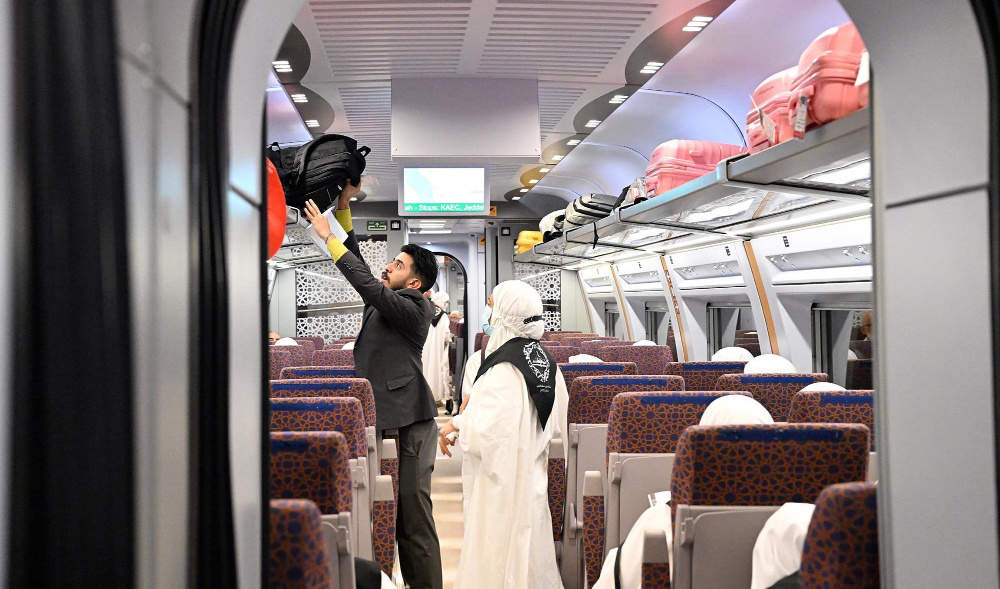
The trains operate over 450 kilometers of track and at speeds of up to 300 kilometers an hour, a fast, convenient, and safe way to travel between the holy cities.
Sharing his experience of traveling on the Al-Haramain train, Mohammed Zeyad, a public relations manager in Riyadh, told Arab News: “It was a great experience for me, and I’d love to do it again. It’s very clean, safe, fast, and time saving. I traveled from Makkah to Madinah, which took three hours."
“The staff working on the train and on stations are friendly and cooperative, displaying an excellent sense of hospitality. Tickets can be booked easily online,” he added. “It’s a very helpful transport initiative.”


